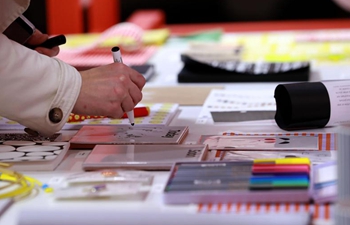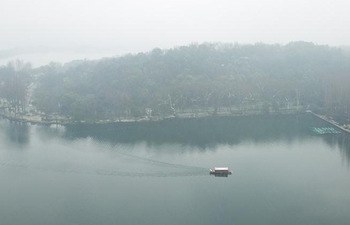WASHINGTON, Jan. 28 (Xinhua) -- Scientists have almost brought to life one of the most classic sci-fi technologies -- 3D displays, using so-called optical trap display that projects graphics into the air, according to a Nature paper published on Nature's website this week.
The report sheds light on free-space volumetric display, a breakthrough made by a group of researchers at Brigham Young University in the western U.S. state of Utah.
The new thing can also be interpreted as "displays that create luminous image points in space," as those displays are capable of producing images in "thin air" that are "visible from almost any direction and are not subject to clipping," the report says.
It is impossible to get light to just stop dead in air, so it has led doubt that we can never realize 3D projections. However, the research team led by holography expert Daniel Smalley has managed to pull it off thanks to some very special lasers.
According to the Nature report, this display works by first isolating a cellulose particle by forces conveyed by a set of near-visible laser beems in a photophoretic trap. The trap and particle are then scanned through a display volume while being illuminated with red, green and blue light. The result is a three-dimensional image in free space with a large color gamut, fine detail and low apparent speckle.
"This display is like a 3D printer for light," Smalley said, "You're actually printing an object in space with these little particles."
At the moment, the projections that are possible with the technology are extremely tiny -- perhaps a butterfly or just a university logo. The technology is not quite ready for primetime yet, Smalley said.

















